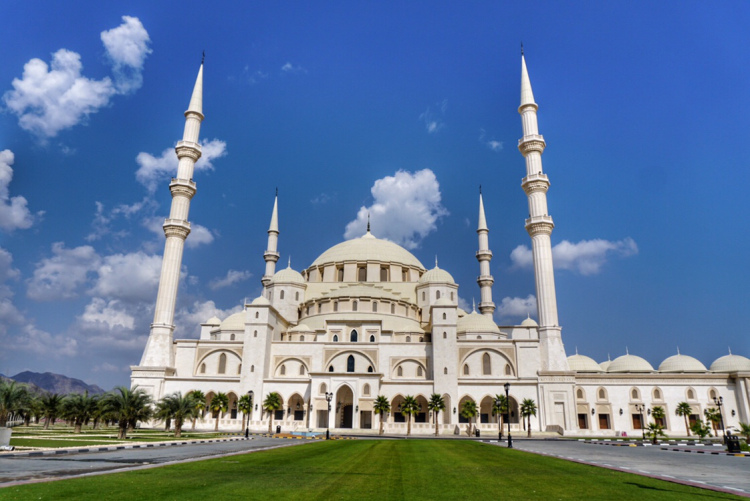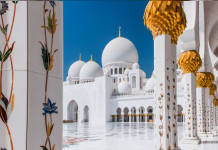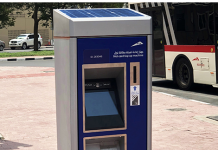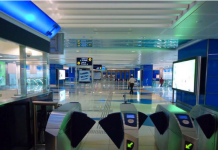Fujairah is the only emirate that is located completely on the eastern coast of the UAE along the Gulf of Oman. The shores of Fujairah extend along the Gulf of Oman for about 70km. from the city of Fujairah in the south to the town of Dibba in the far north. The total area of the emirate of Fujairah is 1,450 sq. km.
ABOUT FUJAIRAH

FACTS & FIGURES
Fujairah’s modern history began in 1808 when Sheikh Mohammed bin Mattar, leader of the Al Sharqi tribe built his castle and the old city surrounding it. The current Ruler of Fujairah is H. H. Sheikh Hamad bin Mohammed Al Sharqi.
Population of Fujairah reached 202,667 according to the Statistical Yearbook of 2014.
According to Federal Competitiveness and Statistics Authority, the estimated population of UAE nationals as of 2010 in the emirate of Fujairah was:
Males: 32,486
Females: 32,374
Total: 64,860
It shares its boundaries with the emirates of Sharjah and Ras Al Khaimah on the west and the emirate of Sharjah to the south. On the north, it shares its international border with the Sultanate of Oman.
Fujairah’s economy is based on fishing and agriculture. Its land is irrigated by rainwater from the Hajjar mountains.
Due to its strategic position, it is the UAE’s only access to the Indian Ocean. It operates a multipurpose port that offers access to major shipping routes of the world making it home to the world’s largest livestock shipping companies.
Other local industries include mining and stone crushing which have benefited from the recent boom in construction in Dubai and Abu Dhabi.
The Fujairah Free Zone, surrounding the port of Fujairah, promotes foreign investment in banking and trade. The emirate’s GPD reached AED14,093 million in 2014.
In 2015, Fujairah launched ‘Fujairah Plan 2040’. The plan includes the development of Fujairah port by adding new terminals for oil, marine services, dry bulk and containers with an anchorage area, along with the expansion of Fujairah airport apron and runway and the relocation of the cargo terminal and airport.
Fujairah is distinguished with its rugged mountains, valleys, waterfalls, oases and wide sandy beaches. It has several hot, cold and mineral springs.
Because of its easterly location, Fujairah’s climate is more moderate than that of Abu Dhabi and Dubai. Weekend visitors looking to escape the heat are drawn to Fujairah’s relaxed and peaceful atmosphere.
Wadi Al Wurayah waterfalls and Ain Al Madhab Gardens are major touristic attractions. And so are the historic Al Bidya Mosque and the Heritage Village.
source:
https://www.government.ae















